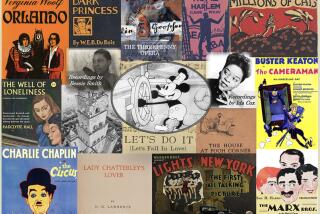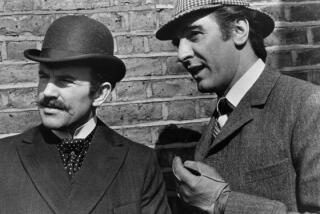Prince and the toddler
Stephanie Lenz of Gallitzin, Pa., thought it might be fun last year to film her 13-month-old son Holden zipping around the kitchen while a Prince:fifixqr5ldhe single from the 1980s played in the background. Then she did what she’d done with several home videos of her toddlers playing or cavorting to music: She posted the half-minute clip of Holden to YouTube so friends and family could see it. Four months later, Universal Music Publishing Group sent YouTube a letter demanding the removal of nearly 200 videos involving Prince songs, including Lenz’s, on the grounds that the clips violated copyrights.
The removal of Lenz’s dancing-baby video prompted a courtroom battle over how copyright holders defend their property online, and particularly on sites such as YouTube that rely on consumers to supply most of the content. The Electronic Frontier Foundation, a technology advocacy group, accused Universal of making a misleading claim of infringement because Lenz used an excerpt from Prince’s “Let’s Go Crazy:h9fpxqr5ldfe” legally. Specifically, the group’s lawyers contended, the fuzzy mini-movie was a clear example of “fair use” -- a limitation in federal copyright law that allows copyrighted material to be used in news reports, commentaries, educational materials, parodies and some noncommercial contexts.
Universal responded by claiming, among other things, that copyright holders never have to consider fair-use claims before demanding that their works be removed from websites. Regardless of its legal merits, such a policy could cripple fair use by making it vulnerable to mindless, automated enforcement by copyright owners. Consider what might happen to online news coverage, reviews and blog posts that include excerpts of copyrighted works. Sure, a publisher can appeal to have its material restored, but the process can take weeks (more than a month, in Lenz’s case). By the time it goes back up, its value may have evaporated. Negative reviews and unflattering commentaries that included images or clips would be particularly at risk.
There should be some deterrent against copyright holders attacking fair uses online, deliberately or otherwise. At the very least, they should have to look at potentially infringing uses of their works and consider fair-use law before sending take-down notices. The courts may be the ultimate arbiter of individual fair-use claims, but copyright holders shouldn’t be free to ignore the guidance provided by federal statutes and previous court rulings. Besides, taking down baby videos won’t make Universal or Prince any richer in the long run. They’d be better off working with YouTube to capitalize on fans’ enthusiasm than scrubbing the site clean of his hits.
More to Read
The biggest entertainment stories
Get our big stories about Hollywood, film, television, music, arts, culture and more right in your inbox as soon as they publish.
You may occasionally receive promotional content from the Los Angeles Times.










